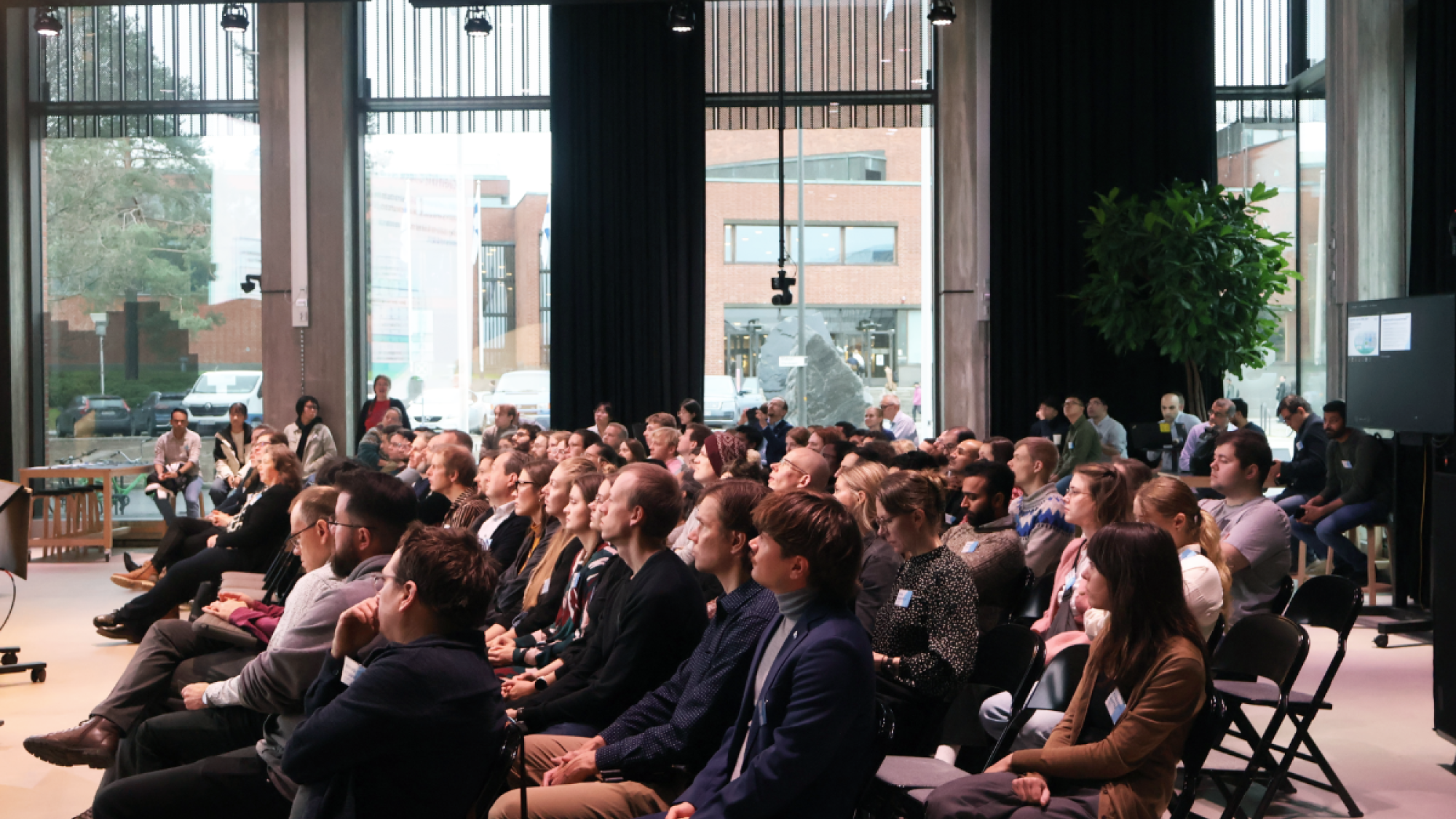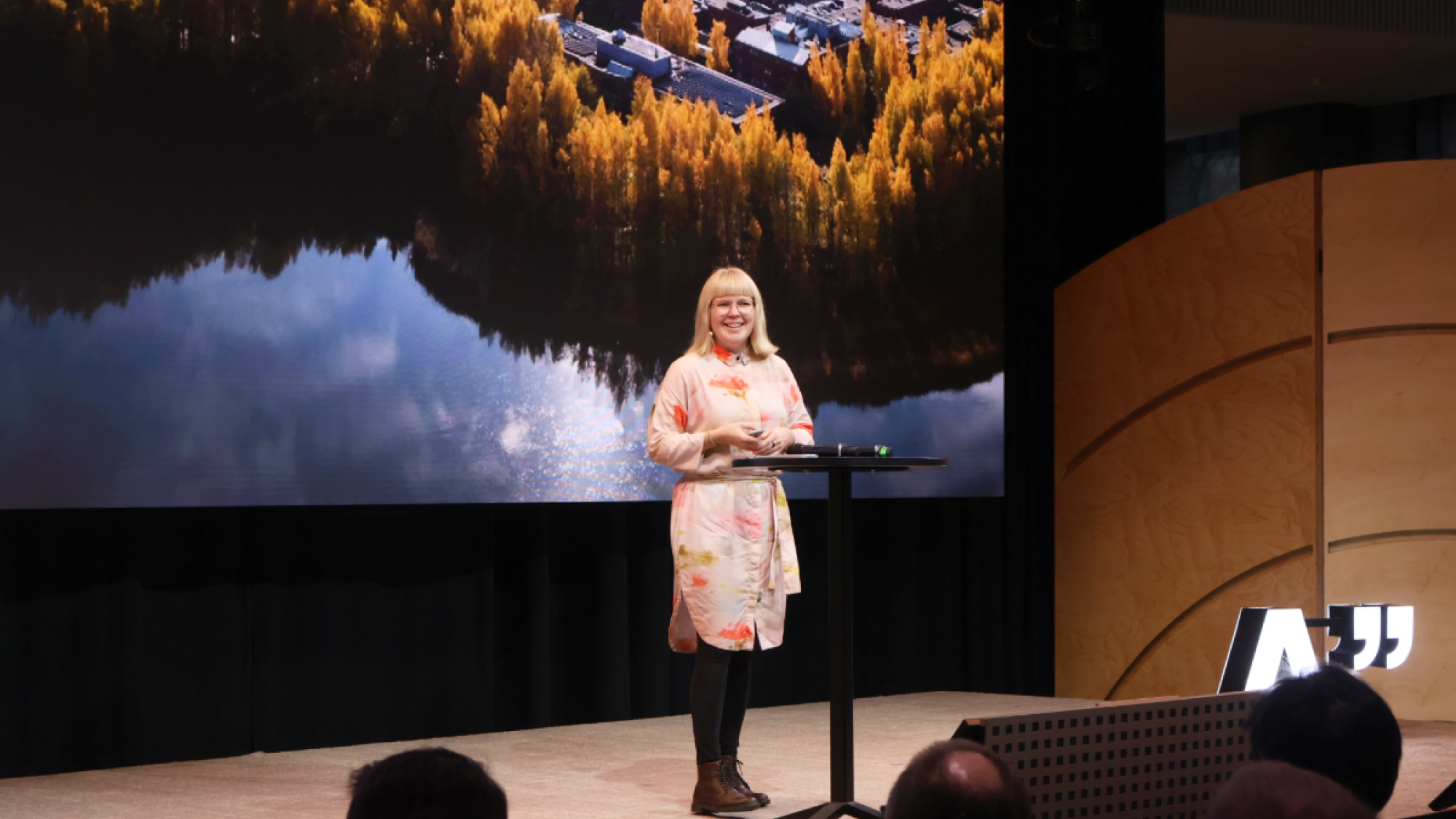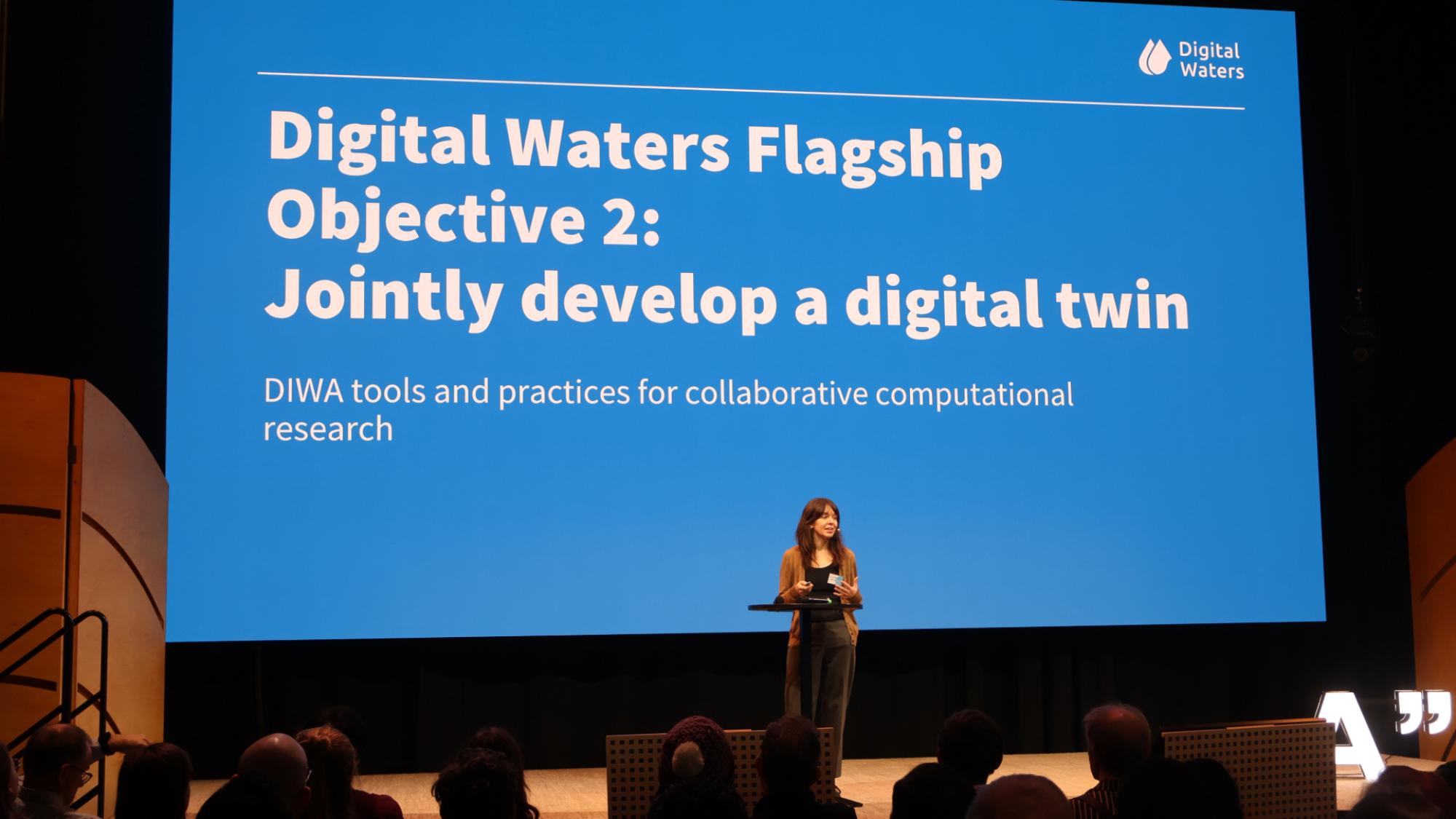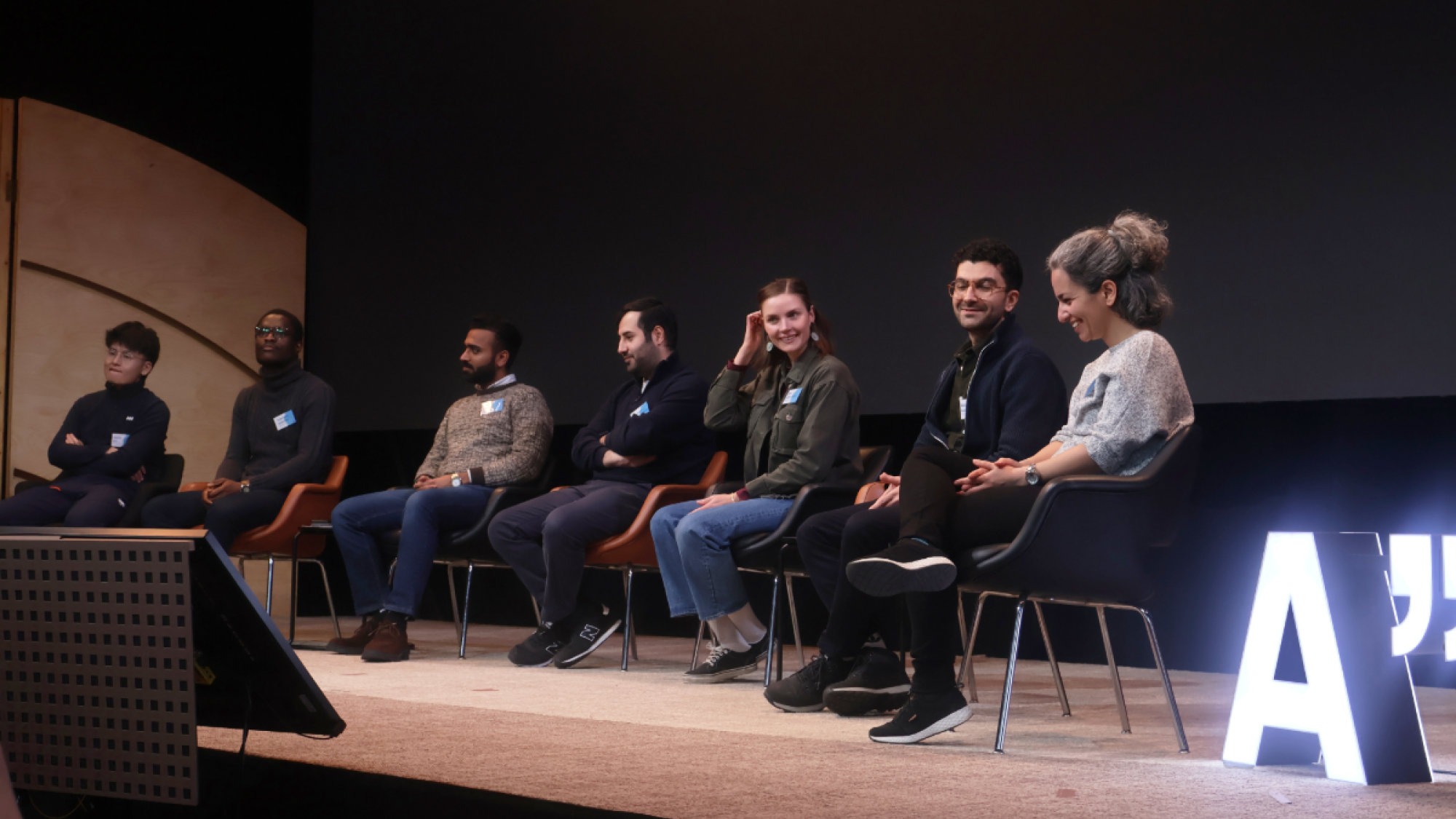Digital Waters Flagship advances water research


On the first day of the Biannual meeting, doctoral researchers and postdoctoral researchers presented their water research work and latest findings in four different scientific sessions. In these sessions, researchers shared insights into cutting-edge data-driven research in climate change adaptation, hydrodynamics, pollution science, ecohydrology, environmental monitoring, and governance to shape the future of sustainable water systems.
In pursuit of meaningful societal impact, the DIWA Flagship works hand in hand with key stakeholders through communication and dissemination activities. At the meeting, Postdoctoral Researchers Alexandra Malmström and Mirjami Lantto Klein unveiled insights from an expert survey on catchment-based planning and digitalization, guiding lively discussions on how research can directly address stakeholder needs.
Together, these sessions offered a comprehensive view of the future directions of water research, while also providing valuable insights into the field’s priorities and emerging study themes.
Digital twins are evolving

The Digital Water Flagship is focused on two overarching objectives: advancing research in digital water management and co-developing a digital twin framework for freshwater systems. The digital twin—a virtual representation of the hydrosphere—will support more informed, data-driven approaches to water resource management.
During the meeting, the latest news in the development of digital twin architecture was heard from Research Coordinator Elizabeth Carter. The Digital Twin Architecture Engineering team has been keeping busy lately. In collaboration with the Finnish Center for Informatics in Science, Digital Waters developers have built a custom virtual research environment, the DIWA-Datalab. They are developing a DIWA Data Space that matches the richness of data generated by the research community. Most importantly, they are defining research and development protocols to make it easier to access data and results, and to collaborate with other European digital twins. These digital solutions empower the diverse Digital Waters community to collaborate in creating services that enable water resource managers in both public and private sectors to leverage cutting-edge research innovations.
Towards future water sector expertise

More than 60 Doctoral Researchers from the DIWA PhD Pilot took part in the two-day meeting. During the second day, an elevator pitch session was organized, where each doctoral researcher had just two minutes to present their research to the audience — an excellent opportunity to sharpen their skills and showcase the diversity of emerging water research. The biannual program also featured a dedicated session for the PhD Pilot doctoral researchers, “Don’t Write Alone: A Path Beyond Publications to Rich Scholarship,” facilitated by PhD Pilot Coordinator Elsa Culler.
Shaping a resilient water future
The DIWA Flagship continues to strengthen its position as a nexus for interdisciplinary water research and infrastructure design. By combining digital innovation, scientific expertise, and collaboration across universities and research institutions, DIWA is paving the way towards a more resilient and sustainable water sector. As the DIWA Flagship network grows, so does its potential to deliver real-world impact.